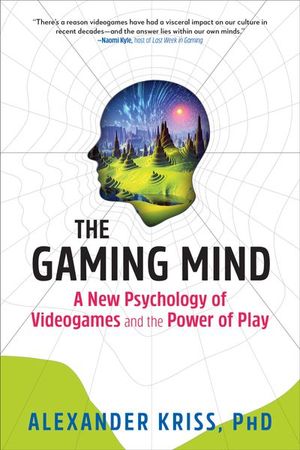The Gaming Mind
Published by The Experiment
“Psychotherapist Kriss debuts with an unusual case for the benefits of playing video games. . . . A thoughtful contribution to an ongoing debate” (Kirkus).
“The Gaming Mind seeks in part to dismantle the stigma that surrounds videogames and the archetypal ‘gamer kid’. . . . Kriss is certainly right to highlight the emotional space that games occupy in the lives of those who play them and to take seriously the feelings that emerge there.” —The Wall Street Journal
Are videogames bad for us? It’s the question on everyone’s mind, given teenagers’ captive attention to videogames and the media’s tendency to scapegoat them. It’s also—if you ask clinical psychologist Alexander Kriss—the wrong question.
In his therapy office, Kriss looks at videogames as a window into the mind. Is his patient Liz really “addicted” to Candy Crush—or is she evading a deeper problem? Why would aspiring model Patricia craft a hideous avatar named “Pat?” And when Jack immerses himself in Mass Effect, is he eroding his social skills—or honing them via relationship-building gameplay?
Weaving together Kriss’s personal history, patients’ experiences, and professional insight—and without shying away from complex subjects, such as online harassment—The Gaming Mind disrupts our assumptions about “gamers” and explores how gaming can be good for us. It offers guidance for parents, clinicians, and the rest of us to better understand the gaming mind. Like any mode of play, at their best, videogames reveal who we are—and what we want from our lives.
“This is a much-needed, nuanced, and informed analysis of gaming. We’ve gotten the public narrative on videogames all wrong, which creates a lot of undue worry about the impact they can have on us. Kriss takes us on a heartfelt personal and professional journey, showing how, with careful and empathetic thinking, we can start to get it right.”-Dr. Pete Etchells, psychologist and author of Lost in a Good Game
BUY NOW FROM
COMMUNITY REVIEWS

